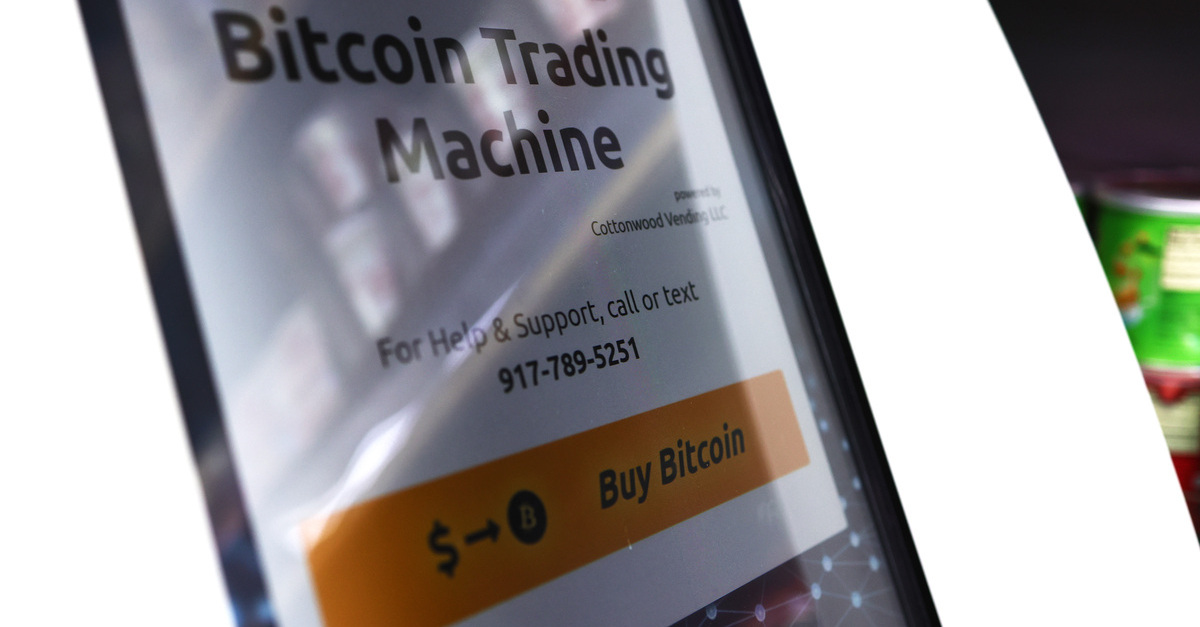
As the price of Bitcoin continues its cyclical, meteoric rise-and-fall-and-rise-and-rise-and-rise routine, the U.S. Congress aims to provide clarity to the all-but nascent cryptocurrency and broader digital asset class space.
On Monday, bipartisan legislation was introduced by Reps. Patrick McHenry (R-N.C.) and Stephen Lynch (D-Mass.) that directs two major regulatory agencies to get their acts together and work in tandem to provide consistent regulations, guidance and standards governing digital assets in the United States.
Often and inaccurately derided as akin to the “Wild West,” Bitcoin and other cryptocurrencies have been regulated in much the same way cash is regulated since the first-mover coin’s inception.
Since 2013, cryptocurrency transactions have been specifically regulated by the Financial Crimes Enforcement Network (FinCEN). Since 2014, the several states have regulated Bitcoin and other digital assets in line with money transmitting and consumer protection laws. The Internal Revenue Service (IRS) also took explicit note of Bitoin in 2014, explaining that existing rules regarding capital gains taxes have always applied to cryptocurrency.
Still, the patchwork of regulatory bodies and occasional enforcement actions—such as the extant Securities and Exchange Commission (SEC) lawsuit against Ripple Labs—have clouded various stakeholders’ understanding of the rules that are and will govern digital assets. Financial technology industry leaders have been reticent to engage in certain projects. Old guard financial institutions, such as banks and Wall Street firms, have been cautious of exposure. Retail investors have wondered about the safety of their potential investments and the likelihood of surprise regulatory action that might diminish or altogether wipe out would-be gains.
The Ripple case is instructive.
For years, investors and various businesses—such as industry-leading exchange Coinbase—operated on the assumption that Ripple’s major token XRP was a commodity like Bitcoin. Prior guidance from FinCEN and the IRS suggested as much. But in late 2020, outgoing SEC leadership dropped the regulatory hammer on the company by claiming that Ripple had been conducting an unregistered securities offering. The price of XRP plummeted and a legal battle is currently raging between the company and the agency that, if the government wins, could result in precedent with dire implications for numerous digital assets that are currently traded as commodities.
Titled the “Eliminate Barriers to Innovation Act of 2021,” the new legislation aims to upend the existing enforcement regime.
According to CoinDesk’s Nikhilesh De, the “ultimate goal” of the bill is to “clarify when the SEC has jurisdiction over a particular token or cryptocurrency (i.e., when it is a security) and when the [Commodity Futures Trading Commission (CFTC)] has jurisdiction (i.e., when it’s a commodity).”
The bill would mandate that both agencies work together with financial technology companies, financial firms, academic organizations dedicated to research and advocacy for digital assets, small businesses engaged in financial technology, investor protection organizations and representatives from historically disadvantaged communities to analyze the current hodge-podge regulatory framework and deliver a report in one year or less.
The text of the legislation notes that some key objectives include an accounting of how “the impact that lack of clarity in [the current] framework has on primary and secondary markets in digital assets; and how the domestic legal and regulatory regimes relating to digital assets impact the competitive position of the United States” viz. “developments in other countries related to digital assets and identification of how these developments impact the competitive position of the United States.”
The legislation intends the working group to recommend “the creation, maintenance, and improvement of primary and secondary markets in digital assets, including for improving the fairness, orderliness, integrity, efficiency, transparency, availability, and efficacy of such markets” as well as “standards concerning custody, private key management, cybersecurity, and business continuity relating to digital asset intermediaries” and “best practices” to reduce fraud and manipulation while increasing investor protections.
The bill was supposed to have passed via voice vote on Monday but due to procedural maneuvering by the far-right Freedom Caucus, the legislation was sent to the Financial Services Committee instead, according to CoinDesk.
“It brings together both the SEC and CFTC in a formal way, to work through some of the key issues that have impacted legal clarity in the space for years,” Amy Davine Kim, chief policy officer at the Chamber of Digital Commerce told the outlet. “Now we have an opportunity to start addressing them in a methodical way with a number of stakeholders.”
The focus on industry stakeholders is seen as key to the development of the decade-plus-old but still relatively new industry in much the same way that Congress tackling regulation of the then-emergent internet economy with the input of industry leaders was instrumental in establishing the internet as we know it via the Communications Decency Act of 1996, which gave birth to the still-controversial Section 230.
As of this writing, Bitcoin is the sixth-largest asset class in the world, dwarfed only by household names like Apple, Google Microsoft and Amazon, according to Asset Dash.
[image via Michael M. Santiago/Getty Images]
Have a tip we should know? [email protected]